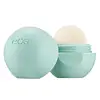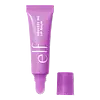What's inside
What's inside
 Key Ingredients
Key Ingredients

 Benefits
Benefits

 Concerns
Concerns

 Ingredients Side-by-side
Ingredients Side-by-side

Triisostearin
Skin ConditioningHydrogenated Polyisobutene
EmollientPolyglyceryl-10 Pentaisostearate
EmollientDextrin Palmitate
EmulsifyingEthylhexylglycerin
Skin ConditioningDiethylhexyl Syringylidenemalonate
Skin ProtectingParfum
MaskingSqualane
EmollientSimethicone
EmollientCaprylic/Capric Triglyceride
MaskingButyrospermum Parkii Butter
Skin ConditioningWater
Skin ConditioningRicinus Communis Seed Oil
MaskingButylene Glycol
HumectantGlycerin
HumectantTocopherol
AntioxidantSodium Hyaluronate
HumectantMaltodextrin
AbsorbentHydrogenated Castor Oil
EmollientLycium Chinense Fruit Extract
Antioxidant1,2-Hexanediol
Skin ConditioningCalcium Pantothenate
Xanthan Gum
EmulsifyingUrea
BufferingCaprylyl Glycol
EmollientMagnesium Lactate
BufferingPapain
Skin ConditioningSoluble Collagen
HumectantPotassium Lactate
BufferingProline
Skin ConditioningAlanine
MaskingSerine
MaskingMagnesium Chloride
Sodium Citrate
BufferingCI 77891
Cosmetic ColorantCI 42090
Cosmetic ColorantTriisostearin, Hydrogenated Polyisobutene, Polyglyceryl-10 Pentaisostearate, Dextrin Palmitate, Ethylhexylglycerin, Diethylhexyl Syringylidenemalonate, Parfum, Squalane, Simethicone, Caprylic/Capric Triglyceride, Butyrospermum Parkii Butter, Water, Ricinus Communis Seed Oil, Butylene Glycol, Glycerin, Tocopherol, Sodium Hyaluronate, Maltodextrin, Hydrogenated Castor Oil, Lycium Chinense Fruit Extract, 1,2-Hexanediol, Calcium Pantothenate, Xanthan Gum, Urea, Caprylyl Glycol, Magnesium Lactate, Papain, Soluble Collagen, Potassium Lactate, Proline, Alanine, Serine, Magnesium Chloride, Sodium Citrate, CI 77891, CI 42090
 Reviews
Reviews

Ingredients Explained
These ingredients are found in both products.
Ingredients higher up in an ingredient list are typically present in a larger amount.
This ingredient is also known as shea butter. It is an effective skin hydrator and emollient.
Emollients help soothe and soften your skin. It does this by creating a protective film on your skin. This barrier helps trap moisture and keeps your skin hydrated. Emollients may be effective at treating dry or itchy skin.
Shea butter is rich in antioxidants. Antioxidants help fight free-radicals, or molecules that may harm the body. It is also full of fatty acids including stearic acid and linoleic acid. These acids help replenish the skin and keep skin moisturized.
While Shea Butter has an SPF rating of about 3-4, it is not a sunscreen replacement.
Shea butter may not be fungal acne safe. We recommend speaking with a professional if you have any concerns.
Learn more about Butyrospermum Parkii ButterTocopherol (also known as Vitamin E) is a common antioxidant used to help protect the skin from free-radicals and strengthen the skin barrier. It's also fat soluble - this means our skin is great at absorbing it.
Vitamin E also helps keep your natural skin lipids healthy. Your lipid skin barrier naturally consists of lipids, ceramides, and fatty acids. Vitamin E offers extra protection for your skin’s lipid barrier, keeping your skin healthy and nourished.
Another benefit is a bit of UV protection. Vitamin E helps reduce the damage caused by UVB rays. (It should not replace your sunscreen). Combining it with Vitamin C can decrease sunburned cells and hyperpigmentation after UV exposure.
You might have noticed Vitamin E + C often paired together. This is because it is great at stabilizing Vitamin C. Using the two together helps increase the effectiveness of both ingredients.
There are often claims that Vitamin E can reduce/prevent scarring, but these claims haven't been confirmed by scientific research.
Learn more about Tocopherol